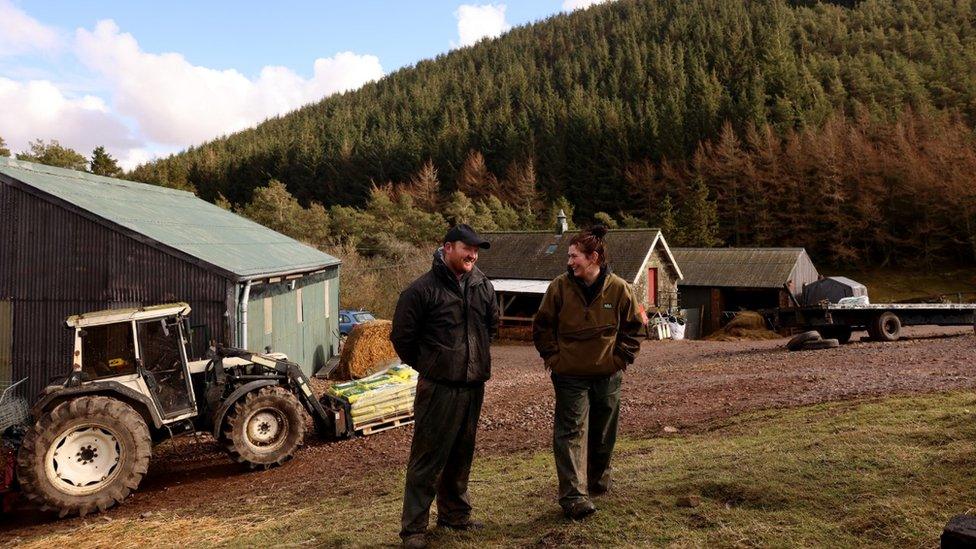No mains power or mobile signal: The valley 'on edge of society'
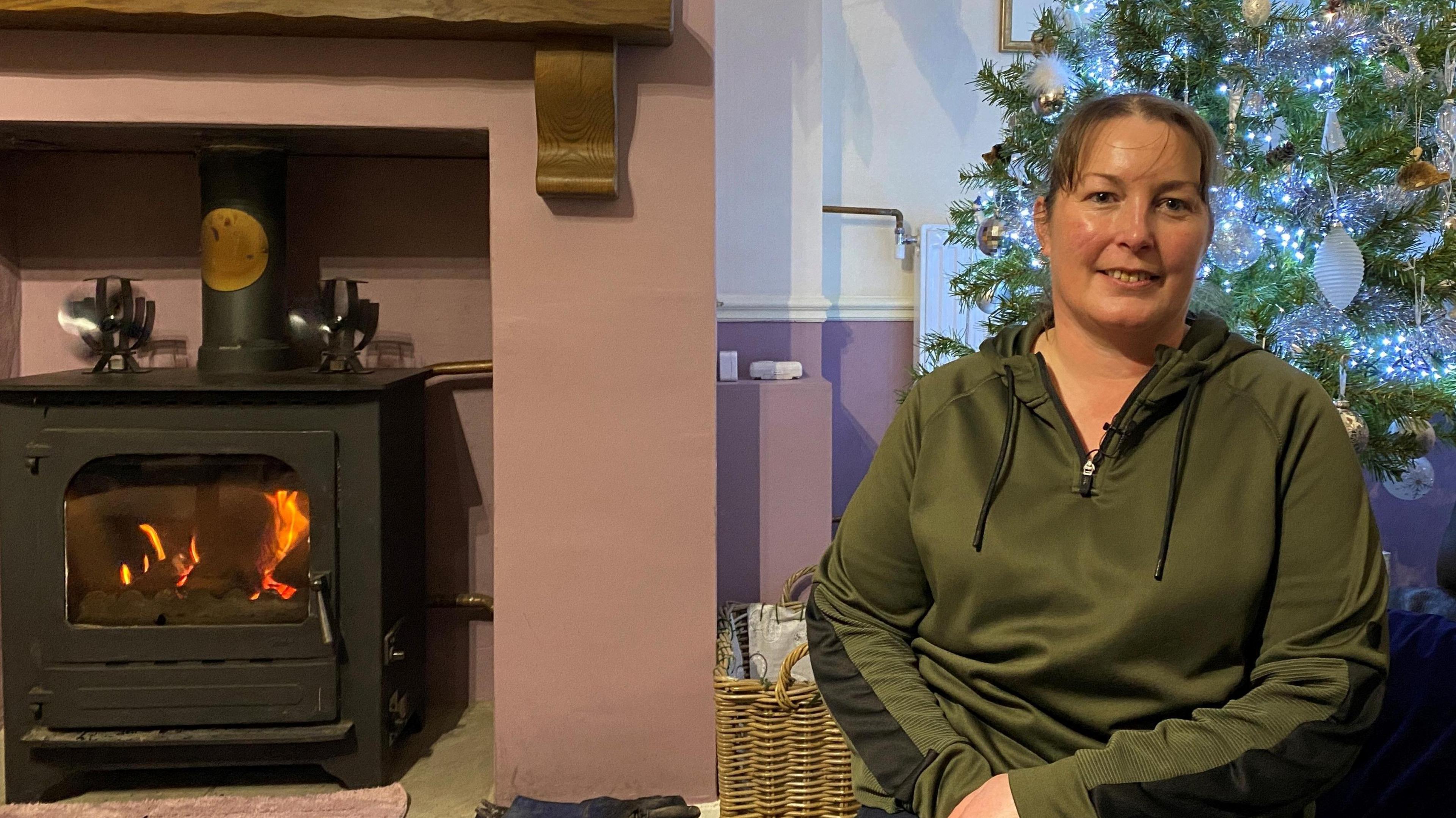
Sam Wood has campaigned for a decade to get mains electricity to the Upper Coquet valley
- Published
"We have appalling roads, no street lights, no fibre broadband, no mobile phone signal, no gas, no mains water, no mains sewerage and no mains electricity."
Sam Wood is one of the 48 people living in the remote Upper Coquet valley in Northumberland, in farms and cottages dotted along a single track road winding into the Cheviot Hills, straddling the border between England and Scotland.
She has campaigned for a decade to get mains power to an off-grid community she describes as "on the edge of society".
But with a connection to mains electricity coming, this is the last Christmas the community will have to celebrate with the threat of a blackout hanging over them.
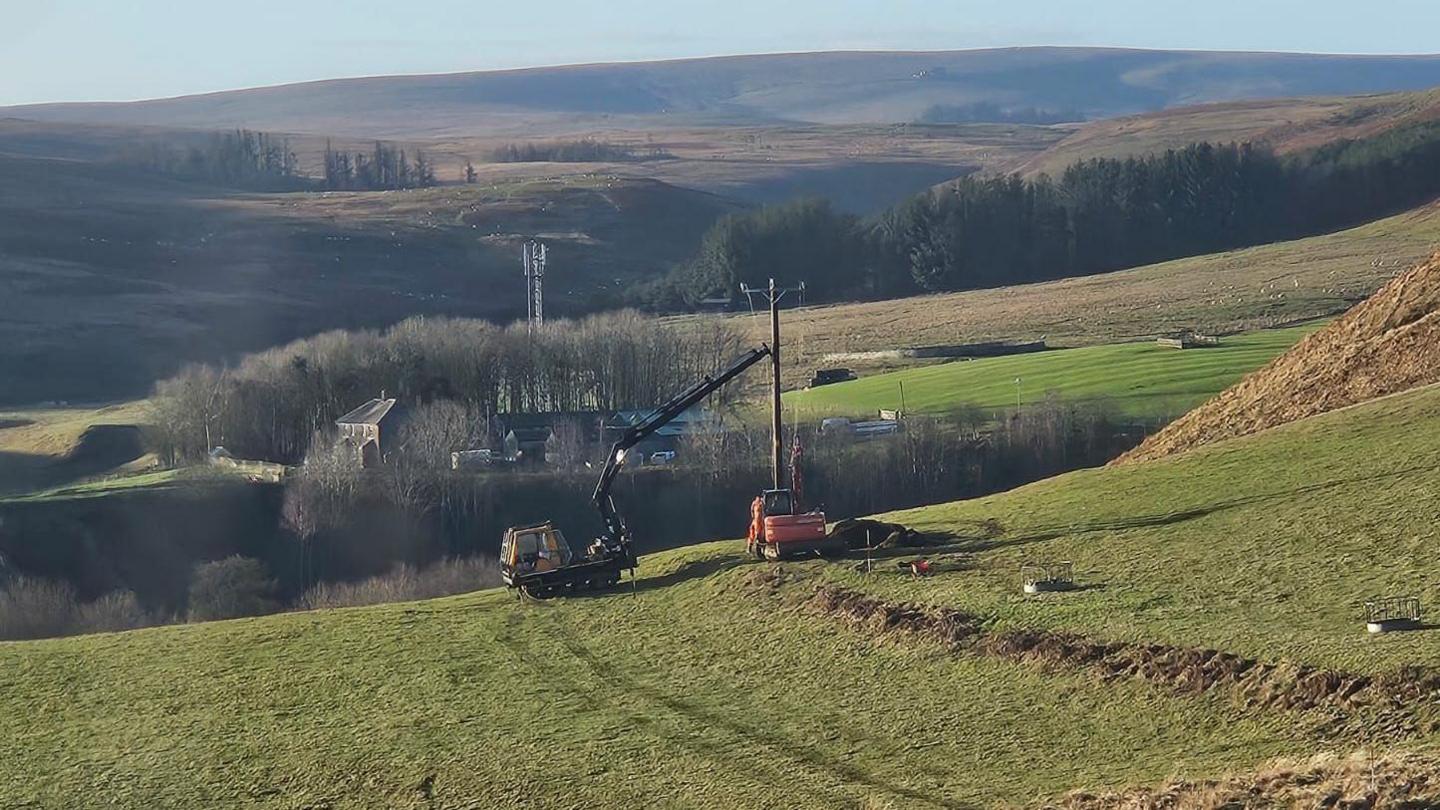
7.5 miles (12km) of the cable will be carried by poles and three miles (4.7km) run underground
The noisy diesel generators that power their homes cost up to £10,000 a year to run, and can break down at any moment, including on Christmas Day.
"We never know when it might happen, we can go months with no problems then the generator can stop working three times in a week," Sam says.
"My husband Daniel has to go out in the dark to try and sort it and if he can't, well, I get the candles out."
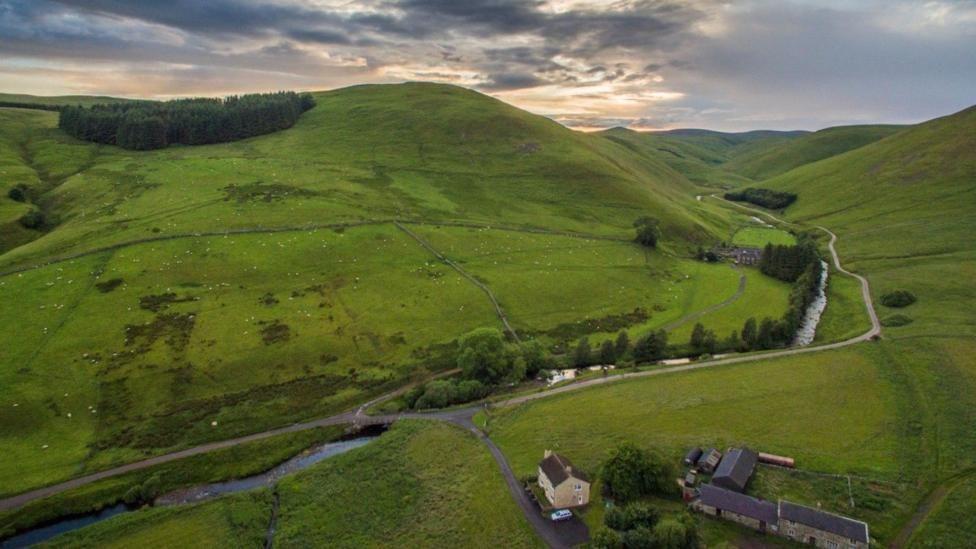
The properties in the valley are owned by the MoD, which is joint funding the project with the Home Office
There are very few people in the country who are able to repair and service them.
For now, the community relies on Claude Schiavetta, who travels from his home in Dunkeld in Scotland.
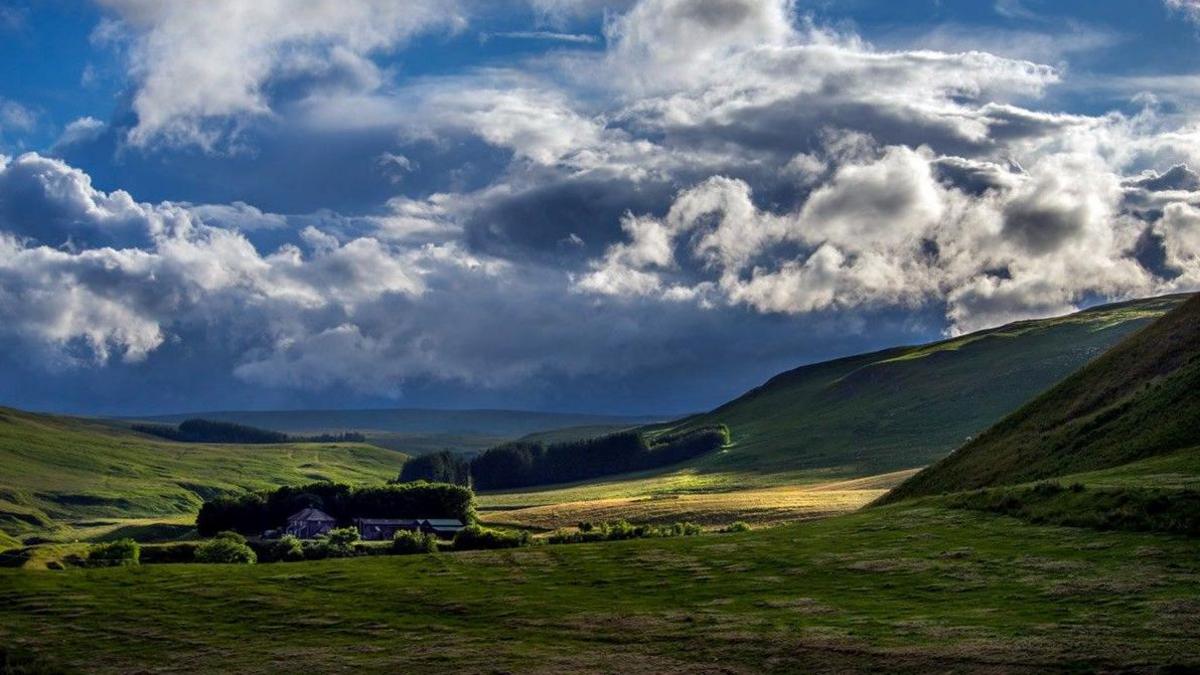
The Upper Coquet valley stretches from Alwinton into the Cheviot hills
"Sometimes when I arrive, families have been without power for a week or two," he says. "So they're usually very pleased to see me."
He may no longer be needed in the valley, but Claude doesn't begrudge the residents.
"I'll miss them all when they get power, but it's about time," he says. "Nobody should be without mains electricity in this country in this day and age."
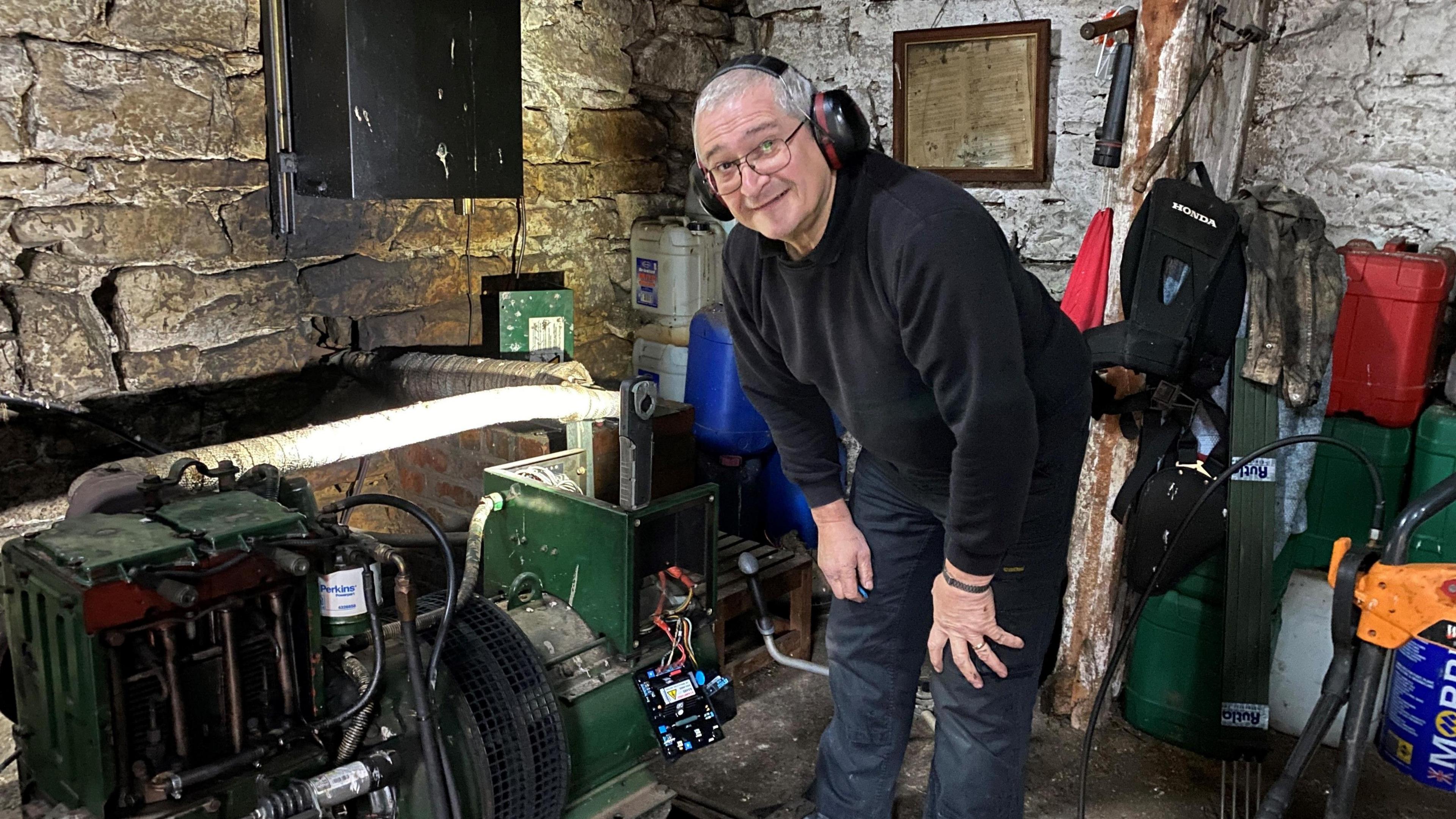
Claude Schiavetta travels from his home in Dunkeld, Scotland, to repair generators in Upper Coquetdale when they break down
The valley missed out on the electrification programmes of the 20th Century because the farms were too remote, and for many years the community was told a connection would be too expensive.
But when the Home Office decided it needed to supply mains electricity to three emergency telecommunication masts in the valley, an opportunity arose to connect many of the properties too.
The project is being funded by the Home Office and Ministry of Defence (MoD) which owns the land.
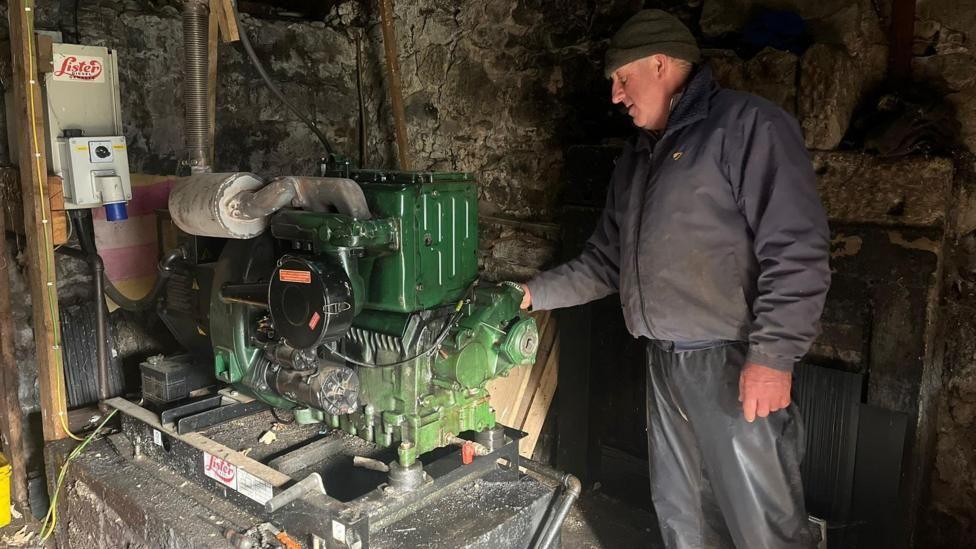
The properties in the Upper Coquet valley all rely on noisy diesel generators
The valley is within the Northumberland National Park and its planning authority initially wanted all the lines buried.
A compromise was agreed, which will see 7.5 miles (12km) carried by poles and three miles (4.7km) run underground.
Northern Powergrid site team manager Matthew Brown says their aim is to have "the least impact possible".
"We did so many surveys, on the trees, on great crested newts, on the birds of prey and we have an on site archaeologist to make sure we don't damage anything we come across."
"I grew up in this area, we want to preserve it for future generations," he adds.
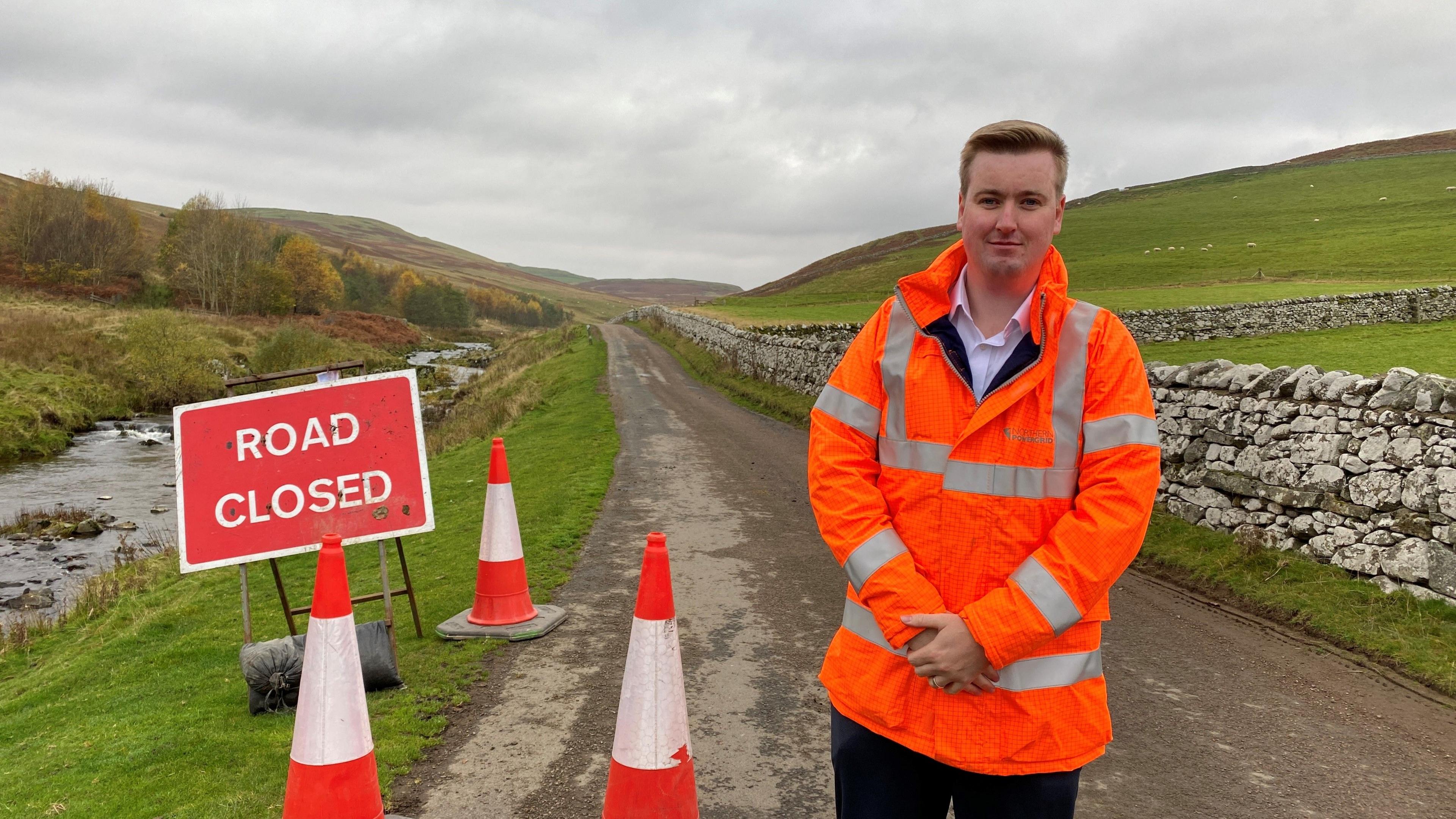
Northern Powergrid is leading the project which will take several months to complete
Scott Anderson's family has been at Linshiels for generations and although he still farms there, he and his family live in a house further down the valley which has mains electricity.
Shona Anderson says there were many reasons why they moved out, but the reliance on a noisy, dirty generator was definitely one of them.
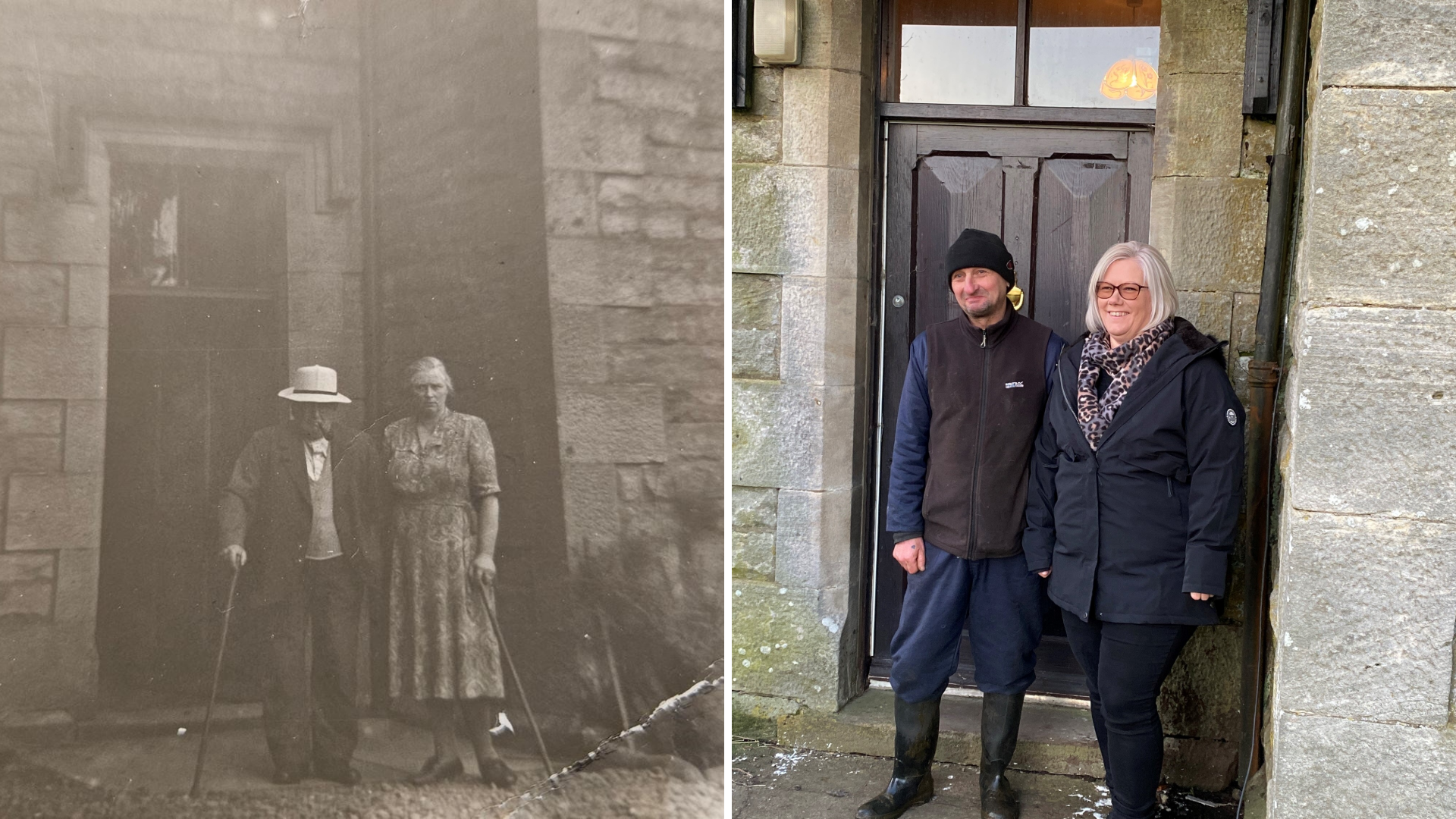
Scott and Shona Anderson hope having mains power will mean they can move back into the house his family have had for generations
"It would break down and sometimes we'd be without power for weeks or even months, she says, adding: "We have had times when we went away for the weekend just to have power.
"It's great to think next Christmas we should be back in here, the kids are older now but we've had some amazing times here, they've got good memories of the place."
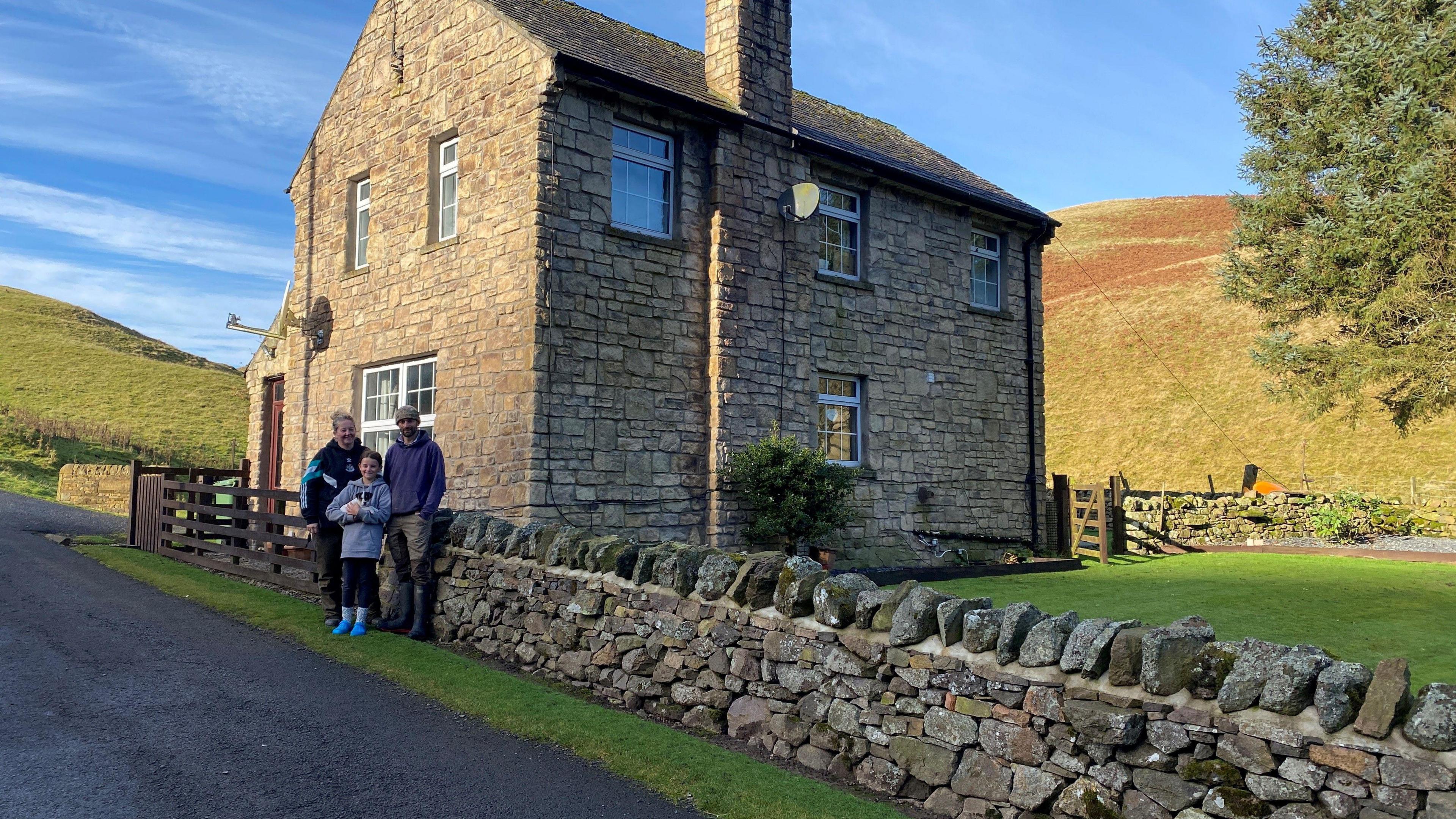
Harry and Megan Byatt live in one of a handful of properties still not getting mains electricity
Not everybody in the valley is getting mains electricity.
Sheep farmer Megan Byatt's home is too remote to get a reliable connection.
"It's a bit of a running joke that we're not getting it, but I don't begrudge my neighbours," she says.
"I'm hoping we'll get some renewables so at least we'll get something out of it."
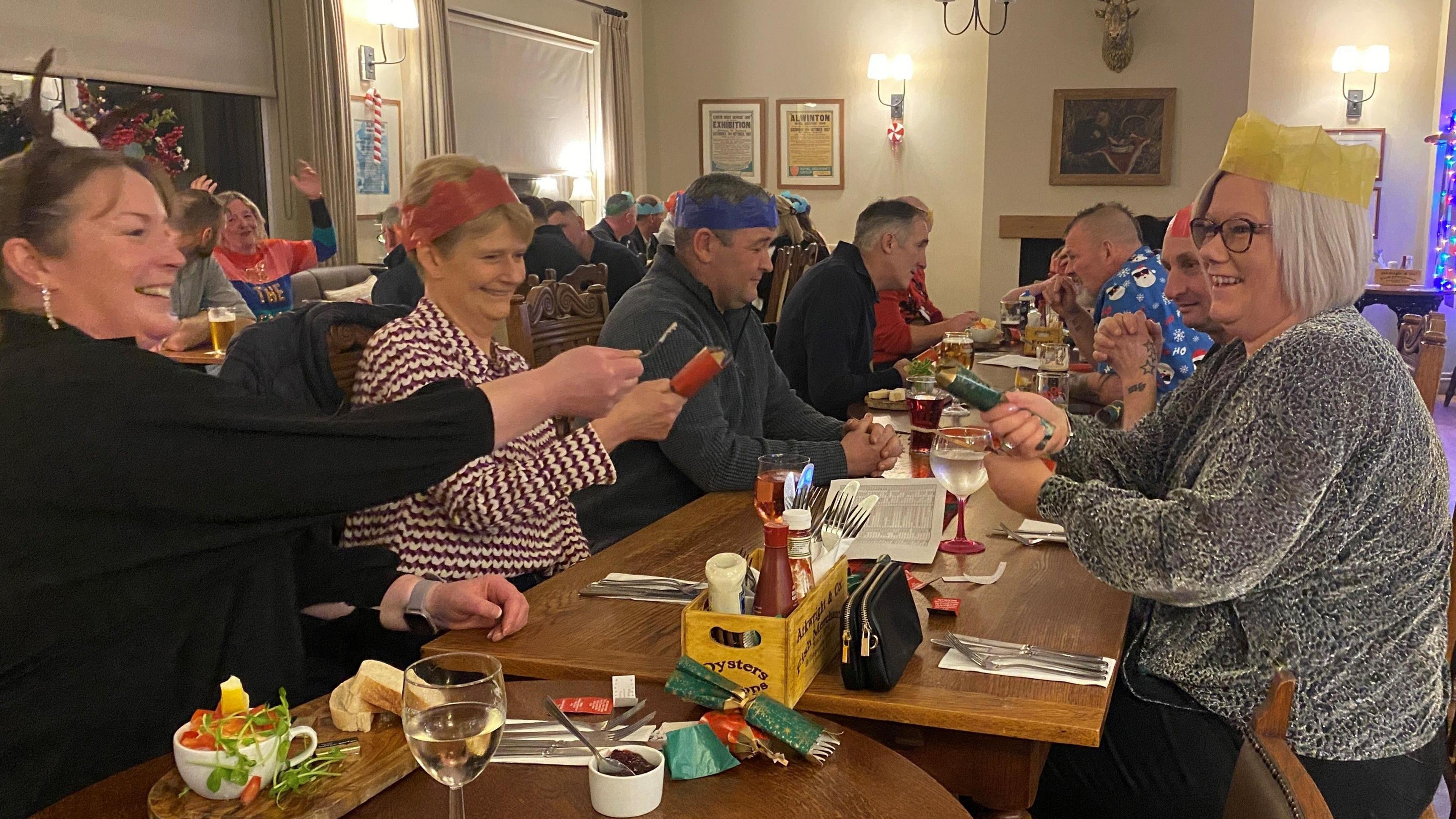
The off-grid community is spread over a large area but know each other well
Upper Coquetdale is a community of fewer than 50 people, some living many miles apart, but the valley Christmas party is well attended and all the talk this year is of the new cable.
"There's still that little doubt," Shona says, "but it's so nice to see the poles as you drive up the valley and you think to yourself, yes, this could actually happen."
Sam agrees: "This is a community where we look out for each other.
"If someone's in trouble, we all help, and that's happened many times.
"Mains electricity won't change that, the valley will always be a very special place."
Follow BBC North East on X, external, Facebook, external, Nextdoor, external and Instagram, external. Send your story ideas to northeastandcumbria@bbc.co.uk.
More stories from BBC North East and Cumbria
- Published27 April 2024
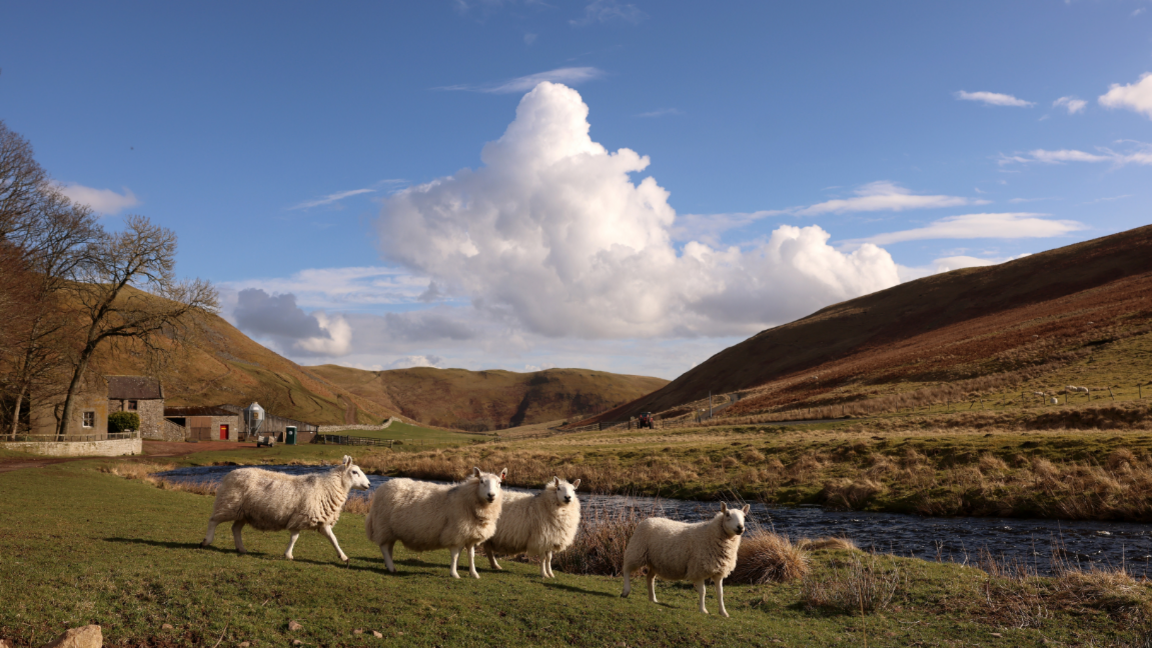
- Published10 April 2023
